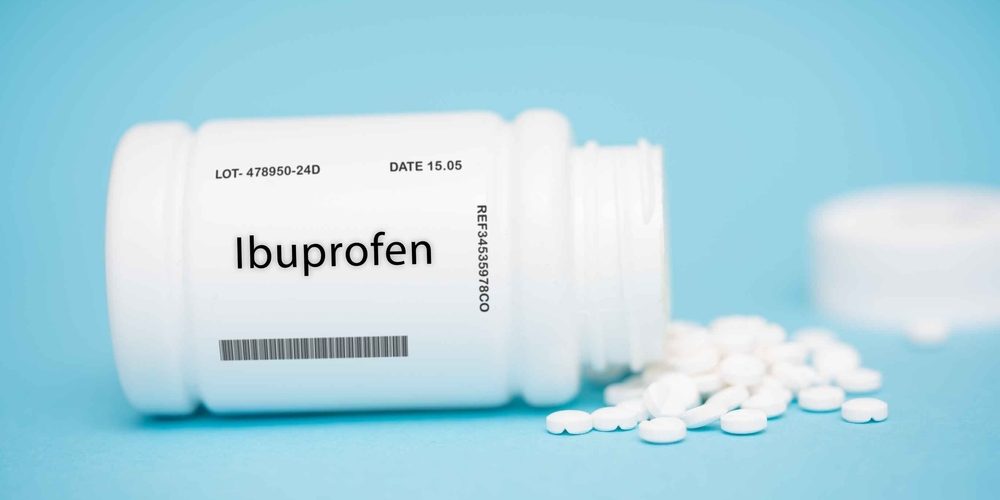Concerned about ibuprofen addiction? You’re not alone. Despite ibuprofen being widely regarded as non-addictive, there’s a growing concern about its potential for addiction, challenging the common misconception that over-the-counter medications like ibuprofen cannot be addictive. The term ‘ibuprofen addictive’ highlights the risks and potential for dependency associated with this anti-inflammatory drug, NSAID. This article unpacks the signs of addiction, the risks involved, and where to find help, guiding you towards informed decisions about your health.
Key Takeaways
Ibuprofen, though not typically considered addictive, can lead to a form of dependency, especially in those using it to cope with chronic conditions or emotional distress. As a nonsteroidal anti-inflammatory drug (NSAID), it inhibits the production of substances causing pain, inflammation, and fever.
Addiction to ibuprofen involves physical symptoms like tolerance and withdrawal, as well as behavioural indicators such as preoccupation with the drug and neglect of responsibilities.
Overcoming ibuprofen dependency requires a multifaceted approach, including medical treatment, therapy, support groups, lifestyle changes, and understanding when to seek professional help.
Unravelling the Truth About Ibuprofen Addiction
Every year, over 29 million American adults turn to ibuprofen, a nonsteroidal anti-inflammatory drug (NSAID), for its pain-relieving qualities. This drug is part of the nonsteroidal anti-inflammatory drugs (NSAIDs) category and is respected for mitigating discomfort. Although there’s a consensus that the ibuprofen treatment doesn’t lead to physical or psychological dependence in the way associated with addictive substances, such an assumption does not entirely reflect reality. The misconception that ibuprofen is not addictive overlooks the potential for dependency, mainly when used over a prolonged period for conditions like arthritis. Especially for those who rely on it continually to alleviate persistent ailments like arthritis, a certain level of dependency on this medication may arise.
Despite lacking the hallmarks of addiction seen with opioids or illicit drugs—namely traditional physical and psychological withdrawal symptoms—a sort of reliance on ibuprofen can still manifest. The roots of this dependency tend towards the emotional side rather than being strictly physiological. It often occurs when individuals use ibuprofen as an emotional crutch to deal with deeper issues beyond their experience of pain.
Debunking Common Myths
It is a common misunderstanding that addiction to ibuprofen is impossible due to its status as an over-the-counter drug that isn’t classified as a narcotic. However, ibuprofen can be addictive, especially when used habitually for emotional or psychological relief. Someone can become psychologically dependent on ibuprofen, mainly if they use it habitually, not just for physical pain relief but also as a way of dealing with deeper emotional or psychological problems. Pfizer, the manufacturer of Advil, has communicated that ibuprofen is not habit-forming and does not demonstrate addictive properties, a claim that requires scrutiny given the potential for misconceptions about over-the-counter medication addiction.
When people start to depend on ibuprofen not only for alleviating physical discomfort but also to manage their mental or emotional well-being, they may fall into a pattern of psychological dependence. Such dependence can lead them into a destructive loop where the individual feels compelled to keep taking the medication even after there’s no longer any need for its pain-relief properties.
Factors Contributing to Dependency
Similar to the misuse of opioids, ibuprofen addiction can stem from insufficiently managed pain needs. Conditions that cause persistent or moderate pain might drive individuals towards overusing ibuprofen, trapping them in a cycle where they develop tolerance and struggle to cease medication use.
Painkillers like ibuprofen have an addictive potential when misused, often necessitating escalating doses to maintain their efficacy—this is a recognised sign of drug addiction. Consequently, if someone abruptly discontinues taking the drug, they may experience withdrawal symptoms, which then continue fueling the dependency cycle. The risks associated with taking too much ibuprofen, including potential overdose, physical and psychological dependence, addiction, harmful side effects, and the need for medical intervention or therapy to manage ibuprofen dependency, further contribute to this issue.
Understanding Ibuprofen and Its Risks
Ibuprofen is a nonsteroidal anti-inflammatory drug (NSAID) commonly used for pain relief, fever reduction, and inflammation. While it is generally considered safe when used as directed, ibuprofen can pose risks when misused or taken in excess. Understanding the potential risks associated with ibuprofen is crucial to using it responsibly and minimizing the likelihood of adverse consequences.
Ibuprofen works by inhibiting enzymes responsible for producing prostaglandins, which contribute to inflammation and pain in the body. However, prolonged use or high doses of ibuprofen can irritate the stomach lining, leading to ulcers, bleeding, or other gastrointestinal problems. Additionally, ibuprofen can increase the risk of heart attack or stroke, especially in individuals with preexisting heart conditions.
Recognising the Signs and Withdrawal Symptoms of Ibuprofen Addiction
Identifying an addiction to ibuprofen requires observing both the physical and behavioural signs common in various other substance use disorders, too. The particular signs pointing towards an addiction to this drug are:
Increasing tolerance for the drug’s effects
Consuming more ibuprofen than originally planned
Difficulty reducing usage despite efforts
Continued consumption, even when it causes harm
Obsession with acquiring and taking the drug
Experiencing strong desires or urges for the medication
A person may seek out different brands of ibuprofen or multiple suppliers if addicted, hinting at their dependency on this substance. General symptoms indicative of addiction include:
Using drugs without medical necessity
Requiring increasingly larger doses to achieve desired effects
Suffering adverse consequences after using
Placing drug-seeking above personal activities and responsibilities
Signs such as growing tolerance beyond recommended dose levels, experiencing withdrawal symptoms upon cessation, and persistent inability to quit signal addictive tendencies related to ibuprofen that might precipitate an overdose from excessive intake of the medication. This excessive intake can lead to an ibuprofen overdose, highlighting the importance of recognising and addressing addiction signs early.
Physical Symptoms

The range of physical symptoms associated with excessive or dependent use of ibuprofen is broad, potentially encompassing ailments such as severe headaches, dizziness, lethargy, sleeping disturbances, increased thirstiness, perspiration excesses, a sensation of pins and needles in the hands and feet, tinnitus (ear ringing), and blurred vision issues. One could experience fluid retention, leading to ankle swelling. Among these effects are gastrointestinal discomforts, including stomach pain, diarrheal conditions, nausea incidents, vomiting episodes, and heartburn.
A physical dependence on ibuprofen can manifest through various indicators that mirror those mentioned earlier.
intense headaches
feelings of lightheadedness or unsteadiness
persistent heartburn
abdominal pain
heightened sweating
experiencing cold chills
a state of overall feebleness
Muscle aches and the other described signs might be misidentified as unrelated health problems or neglected as merely stress-induced or exhaustion-related manifestations. This underscores muscle aches as a common reason for ibuprofen use that can lead to dependency. Thus, it becomes imperative to monitor for these particular indications when frequent usage or long-term reliance on ibuprofen for managing pain has occurred.
Behavioural Indicators
Regarding physical symptoms, several behavioural signs may suggest an addiction to ibuprofen. These signs include:
An obsessive pattern of thinking about the drug
A strong desire or urge for the medication
Constantly making sure one has access to a continuous supply
Organizing daily activities around the consumption of ibuprofen
Feeling anxious at the thought of not having enough medicine
Persisting on using ibuprofen despite experiencing adverse effects is a hallmark sign of addictive behaviour. When someone begins neglecting their duties and withdrawing from social interactions, it could indicate they’re grappling with an addiction to ibuprofen. Often, these changes in behaviour develop slowly, which makes them challenging to identify during the initial stages of dependence on the drug.
Risk Factors for Ibuprofen Addiction
While anyone can develop an addiction to ibuprofen, certain factors may increase the likelihood of abuse. These risk factors include:
History of substance abuse: Individuals with a history of substance abuse may be more likely to develop an addiction to ibuprofen.
Mental health conditions: Mental health conditions such as depression or anxiety can increase the risk of ibuprofen addiction.
Chronic pain or inflammation: Individuals with chronic pain or inflammation may be more likely to develop a dependence on ibuprofen.
Family history of addiction: A family history of addiction can increase the risk of developing an addiction to ibuprofen.
Easy access to ibuprofen: Ibuprofen is widely available over-the-counter, making it easily accessible to individuals who may be prone to abuse.
Dangers, Long-Term Effects, and Risks of Ibuprofen Overdose
Ibuprofen, a nonsteroidal anti-inflammatory drug (NSAID), is widely available as a nonprescription medication for pain relief. Still, its easy accessibility can lead to an increased risk of misuse and potential dependency issues. Abusing ibuprofen over an extended period can cause several severe health concerns, including:
Digestive system complications
Harm to the liver
Renal issues
A heightened risk of experiencing a heart attack
Deterioration of hearing abilities
Anaemia as a result of gastrointestinal bleeding
It is crucial to steer clear of the improper use of ibuprofen to avoid these medical problems.
Excessive dependence on ibuprofen, particularly for managing chronic pain, may lead to both mental and physical addiction. It’s essential to recognise that although ibuprofen can be effective for short-term relief from acute pain, its abuse has potential consequences much worse than the initial discomfort it was meant to alleviate.
Health Risks
Continual consumption of ibuprofen, a joint pain relieving medication, can precipitate various adverse health conditions. Among these are gastrointestinal issues, including stomach and intestinal bleeding, as well as a heightened possibility of developing ulcers. This misuse is not exclusive to ibuprofen but extends to other pain relievers, underscoring the risks associated with the improper use of pain-relieving medications such as opioids and acetaminophen. Habitual excess use of ibuprofen and other pain relievers has the potential to bring about severe kidney and liver damage, along with renal complications necessitating medical treatment.
Gastrointestinal distress, hepatic impairment, and kidney malfunctions caused by chronic misuse of ibuprofen and other pain-relieving medications can result in other detriments, such as:
Impacts on Cardiovascular Wellness
Elevated blood pressure
Clotting disturbances
Rebound headaches that occur after cessation of medication use
Degradation affecting bone integrity
These hazards emphasise the critical nature of responsible utilisation when it comes to taking ibuprofen—an OTC medication—and highlight the need for professional consultation if one becomes dependent on OTC medications for assuaging severe pain or engages in excessive ingestion of ibuprofen.
Impact on Daily Life
Ibuprofen dependency not only poses risks to one’s physical health but also heavily influences daily activities. Those with a moderate substance use disorder involving ibuprofen abuse might overlook duties at home, causing tension and deteriorating relationships within the family unit. Their preoccupation with acquiring and consuming ibuprofen often supersedes participation in social events and adherence to commitments, putting personal connections under considerable stress.
Individuals grappling with an addiction to this moderate substance tend towards isolating themselves as their fixation on ibuprofen dominates much of their time and vitality, diminishing opportunities for engaging socially with friends. Such withdrawal can become quite prevalent among those struggling specifically with moderation issues regarding their substance intake.
The chain effect of addiction extends into the realm of professional obligations, where individuals are likely to place higher importance on satisfying their dependence than on fulfilling work-related tasks. This may result in poorer job performance or overlooked deadlines. In essence, every aspect of someone’s existence could potentially be compromised by the far-reaching consequences stemming from an addiction to substances like ibuprofen.
Strategies for Overcoming Ibuprofen Dependence
Tackling an ibuprofen dependency requires a comprehensive approach that includes:
Health care interventions
Psychological counselling
Peer support circles
Vital changes to one’s daily habits
To address the challenges of ibuprofen dependency effectively, it is advised to start by consulting a qualified counsellor or therapist. Support can also be sourced from organisations like Sunlight Recovery and community drug help agencies.
Primary care doctors are capable of commencing treatment for such dependencies. Still, individuals have the option to have their primary care physician seek out drug treatment services on their own by using dedicated hotlines and online support platforms. At the initial appointment for treatment, medical personnel evaluate aspects including past usage of drugs, occupational status, family situation, and living conditions to devise an individualised addiction management plan that could incorporate strategies like detox programmes, therapeutic sessions, and continuing support post-treatment.
Medical Interventions

Overcoming dependence on ibuprofen significantly involves medical intervention, typically starting with a consultation with a General Practitioner. They provide the initial treatment or direct patients to specialised local drug services, marking the beginning of their path towards recovery. To tailor an effective treatment plan, healthcare providers conduct thorough assessments of each patient’s use of drugs and individual life circumstances.
Safe elimination of drugs from the body is paramount when recovering from drug addiction, and this often requires a complete medical detoxification process. It’s advisable to undertake such detox in medically supervised settings like those provided by PCP’s withdrawal detoxification programmes for safety reasons. During this time, individuals may receive alternative prescription medications as part of their regimen to ease symptoms associated with withdrawal and support them in concentrating on rehabilitation efforts related to overcoming their use of ibuprofen and other drugs.
Therapy and Support Groups

Assistance from therapy and support circles is crucial for those trying to break free from ibuprofen dependency. Through Cognitive Behavioural Therapy (CBT), a type of psychotherapy, individuals addicted to ibuprofen can learn how their thought patterns and emotional responses fuel their dependence on the drug. Forums like Narcotics Anonymous provide an environment where people working towards recovery from ibuprofen dependence and addiction can come together, exchange stories of their journey, and bolster each other’s efforts in overcoming the habit.
In treatment programmes targeting drug dependence, essential workers are assigned to offer steady backing and counsel during a person’s path towards rehabilitation. Post-rehabilitation care services become accessible after individuals finish their programme at drug rehab facilities. These resources include workshops and sessions geared towards identifying triggers that might lead back into addiction. Provided are techniques for managing such challenges effectively and assistance with reintegrating into routine life post-treatment.
Lifestyle Changes
Lifestyle changes are essential to managing and overcoming ibuprofen dependency. Controlling pain through stress management techniques can be effective in lowering inflammation, which is often a source of pain and subsequent ibuprofen use. Adopting healthy habits may also help relieve pain, minimising the need for medications like ibuprofen.
Embracing stress management and health-focused lifestyle changes is encouraging for those looking to reduce their ibuprofen dependency. These changes can be as simple as:
adopting a healthier diet
incorporating regular exercise
practicing mindfulness
exploring alternative pain management techniques.
It’s essential to know when to seek expert assistance if you’re struggling with an addiction to ibuprofen. When a person takes the drug in doses that exceed the recommended amounts or continues their use beyond the advised duration, it becomes particularly critical to get help. The need for professional help is underscored by behaviours such as concealing ibuprofen intake, feeling compelled to take more medication and unable to cease using it, and enduring withdrawal symptoms.
Postponing treatment for an addiction to ibuprofen can lead to severe mental and physical health complications that grow increasingly challenging over time. Should you or someone close to you exhibit these warning signs of dependency on this medication, professional help must be sought immediately to avoid damage and initiate recovery efforts.
Preventing Ibuprofen Addiction
To reduce the risk of ibuprofen addiction, it is essential to use the medication only as directed and under the supervision of a healthcare professional. Follow these guidelines to ensure safe and responsible ibuprofen use:
Take the recommended dose: Do not exceed the recommended dose of ibuprofen.
Do not exceed the maximum daily dose: Do not take more than the maximum daily dose of ibuprofen.
Do not use ibuprofen for longer than recommended: Do not use ibuprofen for longer than recommended by your healthcare professional.
Monitor for signs of addiction or adverse consequences: Be aware of the signs of addiction or adverse consequences, such as stomach pain, dizziness, or withdrawal symptoms.
Seeking Help for Ibuprofen Addiction
If you or someone you know is struggling with ibuprofen addiction, it is essential to seek help. Ibuprofen addiction can lead to serious health complications, including gastrointestinal bleeding, ulcers, kidney damage, and increased risk of heart attack or stroke.
Seeking help from a healthcare professional or addiction specialist can provide individuals with the support and guidance they need to overcome their addiction. Treatment options may include medical detox, counseling, and alternative pain management strategies.
Don’t let ibuprofen addiction control your life. Take the first step towards recovery today by seeking help from a qualified healthcare professional or addiction specialist.
Summary
To encapsulate, ibuprofen is commonly available as an over-the-counter drug. It’s essential to acknowledge the possibility of its abuse and resulting dependency. Being cognizant of the increased risk of heart and addiction indicators to ibuprofen and grasping the reasons behind such misuse are vital in averting it. Should you or someone close exhibit signs of a growing reliance on this medication, procuring expert assistance is vital for rehabilitation. It’s important to remember that seeking aid is commendable and initiating the path towards healing can occur at any time.







